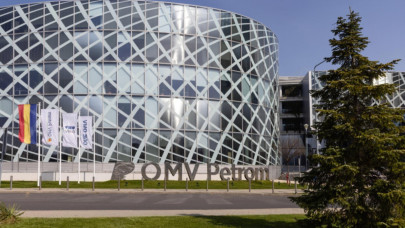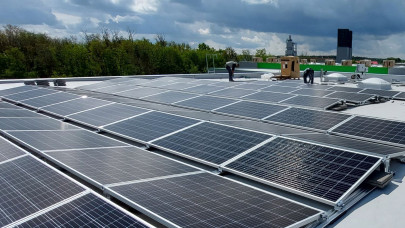OMV Petrom has recently released the sustainability report for the 2023 activities. What are its main conclusions?
Our Sustainability Report for 2023 provides an overview of the company's economic, environmental, and social achievements and projects, as well as its commitments and progress towards sustainable development. We are proud to say that last year brought important progress in our transition to a low-carbon business and we are on the path to reaching our 2030 goals. The intensity of carbon emissions decreased by 11% and that of methane emissions by 72% vs. 2019. Also, the company spent more than EUR 40 million on social projects, with ~850,000 beneficiaries.
The highlights of our Sustainability Report 2023 include:
· More than 1 GW of renewables projects portfolio including partnerships in Romania and 270 recharging stations installed in our regional network
· Carbon intensity of operations reduced by 11% vs. 2019
· Scope 1-3 emissions reduced by ~ 9% vs 2019, with flaring and venting reduced by 61%
· The recovery rate of total waste increased to 82%
· More than 6,700 employees included in health screening campaigns
· An average of 33 training hours per employee
· 30% share of women at the management level
· Supported economic growth by encouraging local purchases: 90% spent with local suppliers
· Continued efforts to positively impact local communities and to support nationwide projects: more than EUR 40 million spent on social projects, with ~850,000 beneficiaries
Energy efficiency is crucial for sustainability. What specific initiatives has OMV Petrom implemented to improve energy efficiency across its value chain, from exploration and production to refining and distribution?
Energy efficiency is about using resources responsibly and is essential to reducing GHG emissions. We are implementing measures to reduce our GHG emissions footprint by transitioning from non-renewable energy sources to renewable energy sources. We are also focusing on investing in high energy-efficient installations, to reduce energy consumption.
We monitor the energy performance indicators and estimate the consumption through our ongoing management programs. Then, we analyze this data and identify potential new programs for the upcoming period. Each division within OMV Petrom has its energy performance indicators monitored and analyzed.
Our commitment to energy efficiency is also why we support the Romania Eficienta program, implemented by the Energy Policy Group. This program has two strategic directions: first, investing in energy efficiency works for public buildings and bringing them to nZEB standards, and second, increasing awareness of the importance of energy efficiency.
The transition to a low-carbon economy challenges the oil and gas industry. How is OMV Petrom preparing for this transition and what role does it see for natural gas as a bridge fuel in a sustainable energy future?
We see the energy transition as an opportunity. As an energy company, we have a big role to play in transitioning to a low-carbon economy and we have already progressed significantly on this path.
At the end of 2021, we launched our Strategy 2030 with the aim to transform the business so that to deliver cleaner and sustainable energy. We focus on three pillars: transition to low and zero-carbon business, grow regional gas, and optimize our traditional business. The investments planned for the implementation of this strategy are approximately 11 bn euro, probably the largest budget supporting Romania's energy transition.
Approximately 35% of the budget supports low and zero-carbon activities, such as renewable power generation, biofuels, alternative mobility, carbon capture and storage, and hydrogen. Since the launch of the strategy, we have developed the largest solar and wind projects portfolio in Romania, cumulating currently approximately 2 GW, together with partners. We aim to reach 2.5 GW by 2030. We also have a strong input in the decarbonization of transportation, with investments supporting the production of renewable fuels and electro-mobility. We recently announced investments of 750 mn euros at our refinery near Ploiesti, for the construction of a SAF/HVO unit and two green hydrogen units – the green hydrogen will be used to produce renewable fuels. Also, our EV charging network has more than 700 points, with the objective to reach 1,000 by the end of this year and 5,000 by 2030.
The energy transition is a gradual and balanced process that requires a mix of solutions, including natural gas and renewable sources. European Union recognizes the importance of natural gas for a controlled and responsible energy transition. By using natural gas in the production of electricity instead of coal, carbon emissions can be reduced by 2.5 times. We also see natural gas as a solution for long-distance transportation, as LNG-powered vehicles generate up to 15% less CO2, as well as an enabler of the hydrogen-based economy.
In this context, natural gas is at the core of our strategy as a key enabler for Romania's energy transition. We aim that by 2030 natural gas to represent 70% of our exploration & production portfolio. Our strategic project Neptun Deep will have a major contribution in this regard. Together with our partner Romgaz, we will invest up to EUR 4 bn in the development phase of the project, which will generate a production of approximately 100 billion cubic meters of natural gas.
What are OMV Petrom's long-term sustainability ambitions? How does the company envision its role in contributing to a more sustainable energy future for Romania and the region?
Sustainability is fully integrated into our 2030 Strategy, with a focus on managing responsible operations, fostering people and communities, and leveraging on innovation and digitalization. Our strategic ambition and the heart of our sustainability endeavours lie in driving the energy transition in SE Europe. The objectives of the UN 2030 Sustainable Development Agenda form an intrinsic component of our sustainability mission, with the Sustainability Framework addressing all relevant material topics.
We recently reaffirmed our ambition to reach carbon-neutral operations by 2050. To do so, we continue to focus on decarbonizing our operations and for 2030 our target is to decrease our own emissions by 30 percent. We will also continue to support our customers in their decarbonization journey – our target for 2030 is to decrease Scope 1 to 3 emissions by 20 percent.
As a result of our efforts towards sustainable transformation, OMV Petrom's management of sustainability continued to be rated as strong last year. OMV Petrom was included in the FTSE4Good Index Series based on proven strong environmental, societal, and governance practices. We were once again featured on Sustainalytics' 2024 Top-Rated ESG Companies List, and we were awarded Silver Supplier status by EcoVadis. We are proud of these achievements, and we persist in holding ourselves accountable to keep working on the areas where we need to improve.











